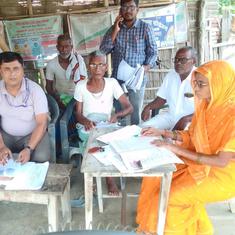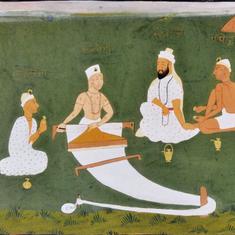Pakistan military is quietly undermining press freedom, says Committee to Protect Journalists
The military bars access to certain areas and uses direct and indirect acts of intimidation, the non-profit organisation said.

Pakistan’s military is using fear and intimidation to undermine press freedom even though violence against reporters has decreased, the Committee to Protect Journalists said on Wednesday.
“The military bars access to certain areas, uses direct and indirect acts of intimidation, and even allegedly instigates violence against reporters to prevent critical reporting,” the non-profit organisation reported. “Freelancers and journalists from established media companies said that to avoid retaliation, they often tone down or avoid controversial but newsworthy stories.”
In April, Geo TV, one of Pakistan’s major television networks, reportedly went off air in most parts of the country. The network’s channels were reportedly disrupted in the first week of March in cantonment areas across the country and residential neighbourhoods controlled by the military. Cable operators in other areas then started blocking the channels. The news channel may have also irked the military by its critical coverage of Pakistan’s placement on a terror financing watch list, and its criticism of Army chief General Qamar Javed Bajwa’s positions on domestic and foreign policy matters.
A month later, the distribution of Pakistan’s oldest newspaper Dawn was disrupted after it published an interview with former Prime Minister Nawaz Sharif, who has accused the military and the judiciary of working together to remove him and implicating him in corruption cases.
In June, journalist Gul Bukhari, who is a vocal critic of the Army was abducted for a few hours in Lahore’s cantonment area.
The Committee to Protect Journalists said senior editors and journalists had confided in private that “conditions for the free press are as bad as when the country was under military dictatorship, and journalists were flogged and newspapers forced to close”.
“The military has quietly, but effectively, set restrictions on reporting: from barring access to regions including Balochistan where there is armed separatism and religious extremism, to encouraging self-censorship through direct and indirect methods of intimidation,” the organisation said. Military officials allegedly call editors to complain about coverage and even allegedly instigate violence against reporters.
“While the decline in the killing of journalists is encouraging, the government needs to counteract pressures that have resulted in rampant self-censorship and threats to the media,” said CPJ Asia Program Coordinator Steven Butler. “Pakistan must address the disturbing trend of impunity and attacks on journalists to shore up this faltering pillar of democracy.”
The non-profit organisation has asked the Pakistan government, among other things, to expedite the revision and enactment of a draft journalist safety legislation, which includes provisions for a special prosecutor to pursue crimes against press freedom.
The organisation has also urged the government to ensure that the law creates a legal and regulatory framework that allows investigators to pursue people responsible for committing crimes against journalists, “even when state-related actors may be involved, including those in the military or intelligence”.









